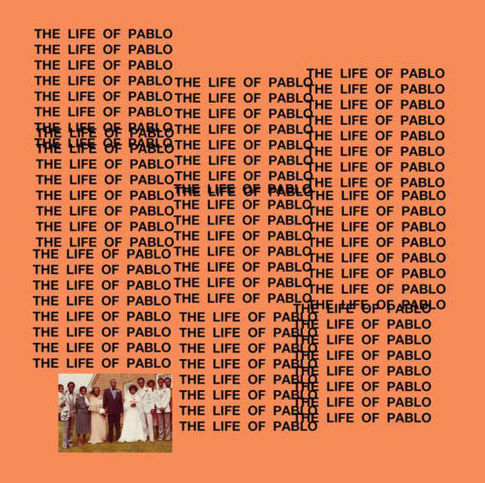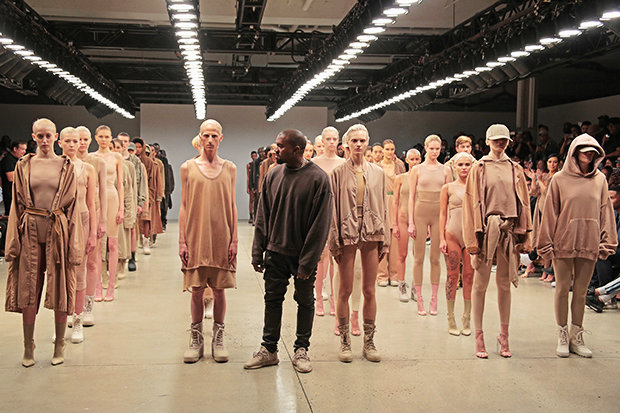

“Name one genius that ain’t crazy.”
–Kanye West, “Feedback,” The Life of Pablo
No one who is actually crazy calls himself “crazy.” A healthy person admits her illness. A truly mentally ill person never admits his mental illness. A borderline class of person exists who calls himself “crazy” not in earnestness but in flippancy, as an in an unconscious admission of decadence and denial, as an unapologetic announcement.
The “artist as madman” meme is like many shibboleths and stereotypes—rooted in a grain of truth, but abused and degraded with popularization, used to justify rather than challenge, like the current fad of practicing mindfulness meditation to seek “happiness” rather than presence. It is true that much great art—and perhaps the most indelible art—issues from tortured souls. Van Gogh is the case that comes to mind: that sort isn’t one to brag about his insanity, and the “craziness” is actual suffering, not some kind of justification.
And it is also true that the creative faculty is strong with many imperfect-but-rational individuals. Shakespeare was a successful businessman. In spite of rough early years and discomfort with authority, Bach was the picture of military discipline as a working artist. West himself made the point in his insufferable 2013 New York Times interview:
“Great art comes from great artists. There’s a bunch of people that are hurt that still couldn’t have made the album that was super-polarizing and redefined the sound of radio.”
By now we know that sound: one of those “contradictions” in West’s character, which West more than anyone revels in. They are everywhere on The Life of Pablo; they are sprawled out on his Twitter feed, like household minutiae come tumbling out of an overstuffed storage closet. “This is a God dream.” “We ‘bout to get this paper!” A crude barb at Taylor Swift, she the strange, unending fixation of West. Complaining about celebrity and the vapidity of Hollywood in “Famous” and “No More Parties in L.A. (That is itself a contradiction: Kanye West complaining about fame.) So which is it? I am all of these things, Kanye tells us. You’re gonna love me or you’re gonna hate me, but I’m gonna be me.

The idea of “contradictions” within the human character, of not a single personality but of an ever-shifting set of personalities within each one of us, is a sententious insight, rendered poignantly by Augustine, Shakespeare, Woolf, etc etc, pretty much all great artists. Including Kanye West. “And they DCFS, some of ‘em dyslexic / They favorite 50 Cent song ’12 Questions’ / We scream: ‘rocks, blow, week, park,’ see, now we smart / We ain’t retards, the way teachers thought.” That’s West using black children’s ability to the mantra of Chicago drug dealers to question their high rate of placement to special education programs. It was daring and insightful, and, unlike occasional shrillness of “conscious” rappers like Talib Kweli and Lupe Fiasco, funny. Funny partly because West was taking the world seriously but not himself. He dressed up in a bear suit on the cover of a rap album.
But here again is the degradation of wisdom. Admitting the bad along with the good is an act of courageous honesty. Declaring both the bad and good “good” is decadence. There is a word for persons preoccupied for whom discovery their identity means justifying a revolving-door of impulses and desires: they are called “adolescents.” Some people never grow up. And some people grow younger with age, when grievances are not grieved. You’re gonna love me or you’re gonna hate me, but I’m gonna be me. I don’t believe the Kanye West of The College Dropout would have said that. I’m gonna be me showed up after 808s/Heartbreak, after the sudden and unexpected death of his mother. I’m gonna be me does not dress up like a bear.
You’ll notice there is so far not much talk of the music on The Life of Pablo. That is problematic. But that is how it is with Kanye West these days, after 808s/Heartbreak and his mother’s death and My Beautiful Dark Twisted Fantasy and Kim. I viewed the prospect of listening to Pablo with dread, and after several spins I just could not take it any more. Too often in West’s “fusion” period (808s/Heartbreak, Fantasy, Yeezus, Pablo) is not so much music one listens to, but rather sound the listener is subjected to.
Pablo is more or less a collection of B-sides, a compendium of tracks that did not make it on Fantasy and 808s/Heartbreak and perhaps Graduation. Pablo needed the discipline and compression Rick Rubin imposed on Yeezus. Several tracks are on course to offering something unique but are not brought to completion.

“Famous” has Rihanna as Fame personified singing over a dreamy, sugar-pop beat, telling West in the song’s hook she “loved you better than your own kin did”; then West interrupts Fame’s hook with rhymes pronouncing his unapologetic dominance over a grinding, hypnotic beat from Swizz Beatz. The song has designs to be West’s statement that he no longer needs fame, but that message does not really come off over West’s now-tired old saws (“I be Puerto Rican day parade floatin’ / That Benz Marina Del Ray coastin’”).
Same with “FML”. “FML” is a snowflake from 808s/Heartbreak, but on that album the edges would have been much less rough, the final end less thrown-together. The first half is pure hypnosis: against a deceptively simple three-key synthesizer loop interspersed with a double-time tap, Kanye raps slowly about the difficulties of remaining faithful to Kim, which passes into The Weeknd’s piercing vocals in a harrowing hook. This is pure West. But he appends Section 25’s post-punk dirge-like “Hit”: the genre-bending mix has promise, but something just doesn’t quite fit. And of course The Weeknd’s hook is about the world wanting West to fail (“They wish I would go ahead and f%$# my life up … They don’t want to see me love you.”). Everybody has to have an old saw.
While most of the album feels similarly disjointed, Pablo has its moments. “Ultralight Beam” begins with the audio of a viral video capturing a little girl casting out “devils” from “the house”; then moves a gospel-crooning Kanye, backed by a choir, asking God to “deliver us serenity / deliver us peace / deliver us loving / we know we need it”; then to Kelly Price blasting out a prayer with prodigious vocals; culminating in an exhilarating verse from Chance the Rapper. No one on earth but Kanye West could successfully piece together a symphony like this.
Just as light is the source of shadow, though, West’s genius for synthesis can be a weakness. When not subjected to the rigor of Yeezus or enlivened by the youthful energy of The College Dropout or, heavens forbid, a measure of self-criticism, the album sounds like the stew made by a chef who tossed in every ingredient in sight without thought of the melding of the tastes but with complete trust in the final product because, well, he’s the chef. An endless lineup of guests shows up; the resulting sense is an Event rather than an album, an equivalent of “We Are the World” where Kanye West is the World. And the risk of this approach—the guests upstaging the host—comes to pass: the most compelling performances on Pablo are the Chance’s verse in “Ultralight Beam” and the ever-impressive Kendrick Lamar’s verse on the otherworldly Madlib’s track, “No More Parties in LA.”
The artistic tendency reflects the personal one. So many strands thrown about, not subject to a critical eye. “This is a God thing.” “We ‘bout to get this paper!” “Can’t let them get to me.” How many chest-bumping rappers who never reached album number three in the past twenty years could this dreck have come from? But now it comes from Kanye West, aka, Great Artist, digital flipbook 140 characters per page, perpetually aggrieved, perpetually misunderstood, perpetually assailed. Or at least that how the world is perceived in the degraded state of his wisdom. West at his best coupled ideas about other people—socially climbing middle-class African-Americans, women who try to date rappers—with confessions about himself. Now he has cut out other people, except as perceived assailants, and the confession. His unceasing obsession is himself, and perhaps that is why he seems to no longer have anything interesting to say.

COMMENTS
One response to “No More Parties with Kanye: A Review of Kanye West’s “Life of Pablo””
Leave a Reply













Zach,
Thank you for your eloquent review of the album!
I’m a newbie to rap and especially to writing about rap, but I think the criticism that Kanye is so self-absorbed that he has nothing interesting left to say misses how multi-dimensional TLOP is. There is some subtle but sharp politics, especially in “Feedback” (“Hands up we just doin’ what the cops taught us/Hands up Hands up then the cops shot us”). “Ultralight Beam” is not the only gospel-ridden track; Low Lights is two minutes of a woman proclaiming her love of God. And there is certainly some self-criticism on Kanye’s part. It hits hardest with the lines from “30 Hours” (“If you didn’t see it coming well you’re not alone/Million dollar renovations to a happy home”). I think the humor is definitely still there — how absurd and self-aware are the back-to-back tracks “Freestyle 4” and “I Love Kanye”?
Granted, I might be biased because I’ve been listening to it non-stop since it came out. After a while, the first six tracks’ flow gets intoxicating, and on the back half the standouts are solid: “Real Friends”, “30 Hours” and “Fade”.
Either way, reviewing the album puts Mbird in a tough position. Kanye said just a couple of weeks ago that white publications should stop writing about black music. That might be harsh, but he makes a valid point. In writing about this album especially and about black music more generally, we must ask ourselves: to what extent is rap about the Black experience – only to be understood by Black people?